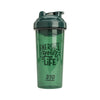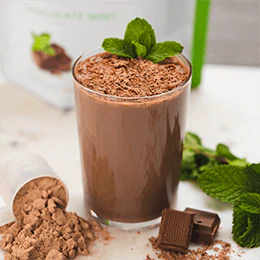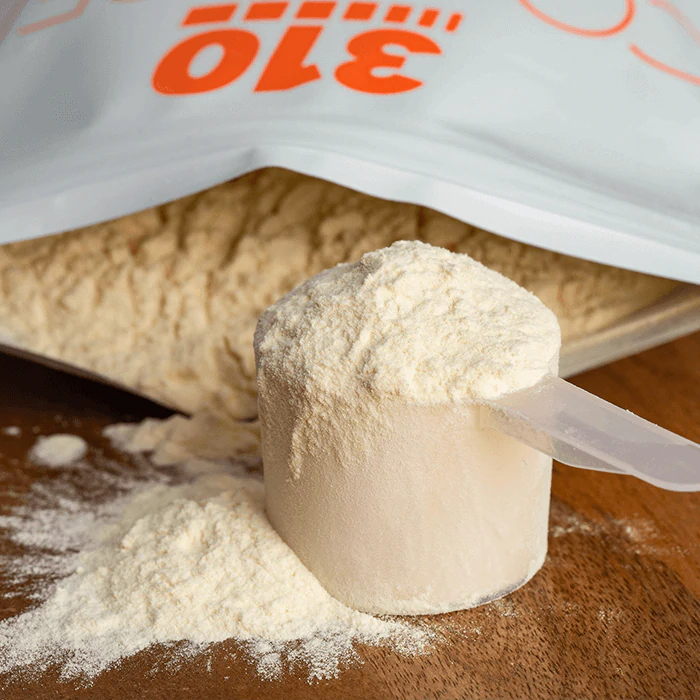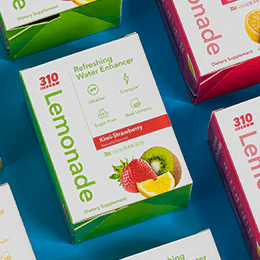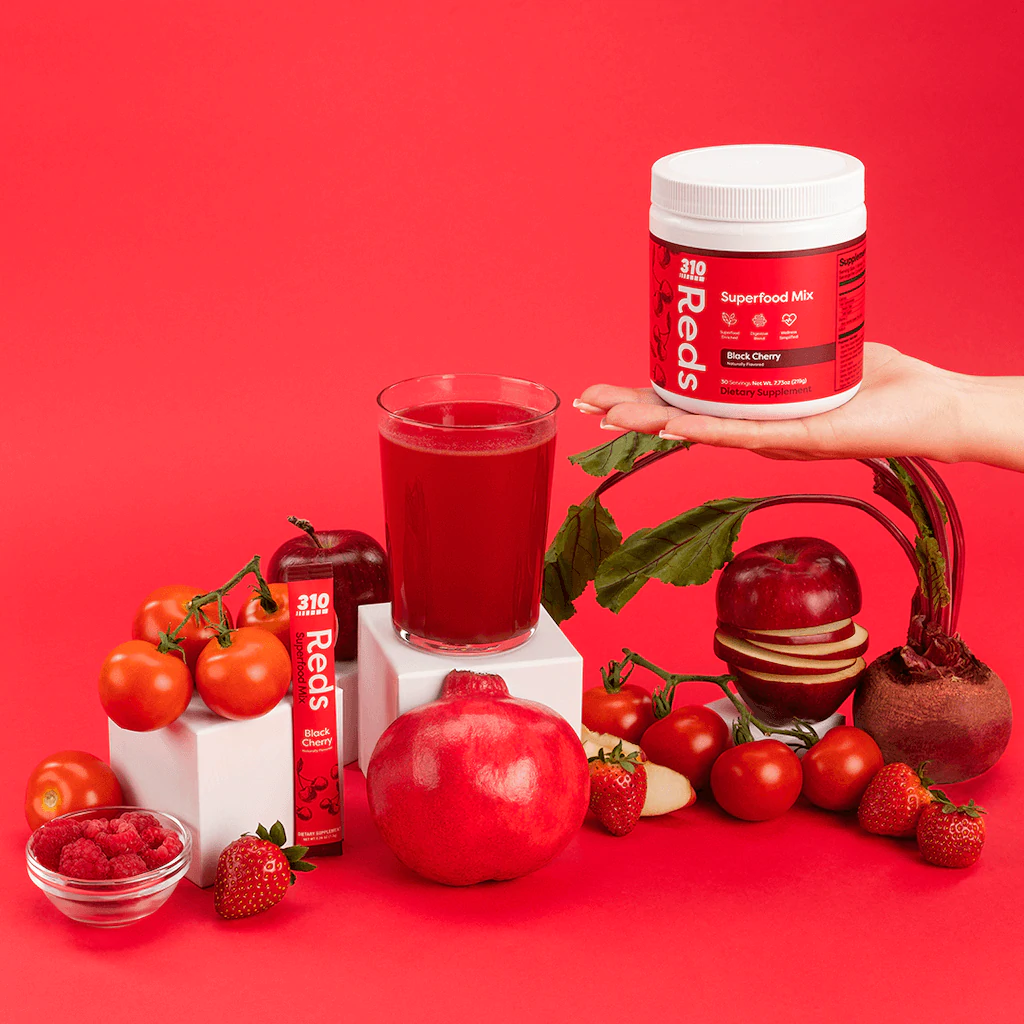It’s no secret that the ketogenic diet – the low-carb, high-fat dietary plan that’s sweeping the nation right now – is heavy in the meat department. But is there a way to do keto if you’re vegan, vegetarian, or eat mostly plant-based foods?
The answer is yes, and it can actually be a very healthy way to follow the diet – if you do it correctly.
This guide will go into detail about how you can reap the potential benefits of keto while staying true to a vegan or vegetarian diet plan. Of course, it will take some foreplanning on your part, as eating plant-based keto means cutting out a lot of the foods that are normally your go-to source of nutrients.
But First, a Recap on How Keto Works
On a regular diet, your body uses glucose (or sugar/carbs) as its main source of fuel. But when you greatly reduce the carbs in your diet, you’re essentially switching your energy source. Instead, your body starts producing something called ketones, and your body enters a state called ketosis.
Being in ketosis – the main goal of the keto diet – has been associated with tons of potential benefits including increased energy, reduced hunger, enhanced mental focus and greater weight loss. Since it helps reduce inflammation in the body, research also shows that it may support optimal health in various ways.
The trick is to aim for no more than 50g of total carbs per day, or 30g or less of net carbs per day (the total carbs minus the fiber on product labels). The percentages you want to aim for daily are 75% fat, 20% protein and 5% carbs. We recommend using our keto calculator to keep track of your calories and macronutrients.
For a more in-depth explanation of how the ketogenic diet itself works, check out our post, Ketogenic Diet for Beginners, here.
How to Follow Keto on a Vegetarian Diet
What’s great about being a vegetarian and going keto (versus vegan) is that you still have access to high-quality dairy items, which will provide necessary protein and other nutrients. As you will see when we get to the vegan section, things get a bit trickier on a vegan keto diet.
On a vegetarian keto diet, it’s much more about learning how to rearrange the portions on your plate. Typically, most vegetarians get a majority of their nutrients from plant-based foods, grains and beans.
On a vegetarian keto diet, it’s much more about learning how to rearrange the portions on your plate... and, most importantly, you’ll want to douse all your meals in healthy fats.
You’re most likely used to looking down at a very colorful assortment of mostly veggies, carbs and a small amount of protein. However, to be successful on keto, you have to remove all high-carb fruits and veggies, grains, beans, legumes, and sugar in any form. You’ll want to get more protein from dairy and high-quality plant-based meal replacement shakes.
And, most importantly, you’ll want to douse all your meals in healthy fats, since fat is the key ingredient that’s going to kick your system into ketosis and keep it there.
Vegetarian Keto Foods
Oils – Lean on healthy oils in your meals to help you reach your daily fat percentage. Great choices include avocado, coconut, olive and MCT oil. And don’t just stop at your plate. MCT Oil makes a great addition to your morning coffee or smoothie to up the fat content and keep you full and satisfied!
Plant-Based Meal Replacement Shakes – A high-quality, low-carb meal replacement shake that is free from sugar and artificial sweeteners should be a staple on the vegetarian keto diet. The shake should have optimal protein and fiber and an abundance of vitamins, minerals, superfoods and probiotics. This is because it’s easy to become deficient in certain nutrients on plant-based diets in general – and adding in the keto aspect makes it even tougher.
Plant-based protein shakes are an easy way to make sure you get enough protein and nutrients while on this diet plan (and are especially great for busy lifestyles and on-the-go). Simply add in 1-3 tablespoons of MCT oil for additional fat.
Eggs – You should definitely lean on eggs to get high-quality, complete protein while following vegetarian keto. Aim for organic, free-range eggs for the most nutrients.
Other Dairy – In moderation, full-fat dairy sources will also greatly assist with the fat, protein and nutrient content you need on this diet plan. Get plain Greek yogurt and cottage cheese to avoid added sugar, hard cheeses and grass-fed butter.
Fermented Soy-Based Proteins – Many people don’t realize there’s a major difference between unfermented soy products (such as processed tofu) and fermented soy products. Tempeh and natto are fermented soy products, which studies show offer a range of health benefits due to the fermentation process. (1) Tofu, on the other hand, is a highly processed protein made from soybeans that we don’t recommend. Most of the soy grown today is genetically modified and soy naturally contains estrogen-mimicking properties which some studies show may mess with your body’s natural hormones. (2)
Nuts/Seeds – Nuts, seeds and their corresponding butters are a fantastic way to get plant-based healthy fat and fiber while on vegetarian keto. But keep in mind that they do contain carbs, so you’ll want to monitor your intake to make sure you don’t go over your carb count.
Veggies – You should absolutely eat a wide variety of low-carb veggies while on a vegetarian keto diet. Luckily, you have plenty of nutrient-packed options including spinach, kale, cabbage, Brussel sprouts, broccoli, asparagus and mushrooms. In addition, chopped cauliflower makes a great rice and potato substitute while spiralized zucchini makes a great pasta alternative.
Fruits – Unfortunately, this is a category that just doesn’t work on a keto diet, as most fruits are too high in carbs. To satisfy your fruit craving while on vegetarian keto, you can have small amounts of strawberries, raspberries and blackberries, which are all low-carb fruits.
The best thing to do to make sure you don’t get stuck without healthy food options that fit into your diet is to plan in advance… and that means making some great vegetarian keto recipes. Or, if you’re in a rush or simply don’t want to turn on the stove, that’s no problem either. You’d be surprised how many awesome shake recipes you can make with this convenient keto kit. Try it today!
How to Follow Keto on a Vegan Diet
Moving onto a vegan keto diet, things are about to get a bit tougher! Keep in mind that you’ll absolutely need to supplement with certain vitamins and minerals to ensure you don’t become deficient in any nutrients (and we’ll go into that a bit more later).
But first, let’s talk about what makes a vegan keto diet harder than the vegetarian version: the removal of all dairy products, which serve as a great source of protein and nutrients on the vegetarian keto diet.
Without dairy, you’ll need to lean on vegan, plant-based meal replacement shakes even more than on the vegetarian plan.
Without the dairy, you’ll need to lean on vegan, plant-based meal replacement shakes even more than on the vegetarian plan. You’ll want to be wary of vegan dairy replacements, since many of these products contain soy. Check the labels on vegan cheeses, eggs, butter and milk substitutes to ensure they use coconut and nut ingredients instead of soy. In addition, make sure they don’t contain unhealthy chemical or artificial ingredients.
Tips for Eating on a Vegan Keto Diet
Plant Protein Shakes - Consider having a high-quality plant-based protein shake for two of your meals, and also a snack. As another idea, the protein powder can also be mixed into other foods/recipes for added protein.
Vegan Dairy Replacements - Look for vegan dairy replacements that don’t contain soy (such as coconut cream in place of heavy cream, and nut milk instead of soy milk).
Get adventurous with your meals - Get adventurous with your meals. For instance, you’ve probably never considered using sea vegetables such as kelp and bladderwack in your meals before. But they can be used to provide taste and dense nutrients on vegan keto diets.
Try a variety of different mushrooms - Try a variety of different mushrooms, which are keto-friendly and provide a great base for vegan keto meals. These include shiitake, king oyster, lion’s mane, etc.
Follow the non-dairy eating guidelines outlined for vegetarian keto-goers in the section above.
Want more inspiration?! Try these vegan keto recipes that feature exciting ingredients and addictive taste. The list definitely proves that you can still find tasty recipes even with such a restrictive diet plan.
Supplements You May Need On Vegetarian & Vegan Keto Diets
Along with plant-based meal replacement shakes – which make an indispensable source of protein, vitamins, minerals, fiber and more on vegan and vegetarian keto diets – you most likely will also need some supplements in order to maintain shining health.
Talk with your doctor so they can test your nutrient levels and determine if you’re low in specific nutrients. Many people on vegetarian/vegan diets choose to supplement with the following vitamins, minerals and fatty acids to ensure they get enough…
Vitamin D - This is an essential nutrient for immune system function, mood and muscle recovery, yet very few foods contain it. Instead, the main source of vitamin D is the sun (your body makes it in response to sunlight). For this reason, many people are deficient in this nutrient, especially if they live in climates that don’t get strong sunlight year-round. Of the foods that do contain vitamin D, most of them are animal-based. While there are also vitamin D fortified dairy and cereals, you most likely won’t get enough of them on a vegetarian or vegan keto diet – so you could supplement with a high-quality multivitamin. (3)
DHA & EPA - These omega-3 fatty acids are essential for a healthy brain and eyes and help prevent inflammation in the body. But they’re also mostly found in animal products such as fatty fish and seafood. As a substitute, you could also get some omega 3’s from chia seeds and hemp seeds, but you may also want to supplement with them.
Vitamins B12 - Dubbed the energy vitamin, B12 is responsible for transforming what you eat into usable fuel. It’s also vitally important to the inner workings of your brain, nerves, nervous system, blood cells, and DNA. Vegetarians and vegans are at a higher risk for vitamin B12 deficiency since the nutrient is mainly found in animal-based foods.
Iron, Zinc and Calcium - While iron and zinc are necessary for proper metabolism and immune functioning, calcium is essential for healthy bones and teeth. All of these nutrients are lacking in a diet that doesn’t include much animal or dairy products, so you could supplement with them.
Other supplements that will go a long way in helping you reach your goals on a vegetarian or vegan keto diet include probiotics for great gut health, digestive enzymes to assist with nutrient absorption and green juice powder for extra nutrients and beneficial fiber.
Summing It Up: Will a Plant-Based Keto Diet Work For You?
So, now that you know the facts about plant-based and keto, are you ready to get onboard with this high-fat, low-carb dietary plan despite your plant-based preferences? We hope we outlined exactly how you can do that and still see results.
The bottom line is, a vegetarian keto diet and vegan keto diet are both achievable with some pre-planning and the right plant-based meal replacement shakes. Luckily, we have the latter covered for you if you’re a vegetarian.* Although 310 Shakes aren’t vegan, they’re plant-based and dairy-free.
Don’t miss out on the incredible goodies you’ll find in our targeted keto kit – complete with an e-book full of recipes, nutrient-packed plant-based protein powder and more. Get your kit now! And check back often on the 310 Blog for more articles and resources on how to make a keto diet work for you!
Sources:
- https://www.mercola.com/Downloads/bonus/dangers-of-soy/report.aspx
- https://draxe.com/what-is-tofu/
- https://www.healthline.com/nutrition/7-supplements-for-vegans#section2
*Note that the vitamin D used in 310 Shakes is an animal-based supplement, which is why it’s not vegan.

